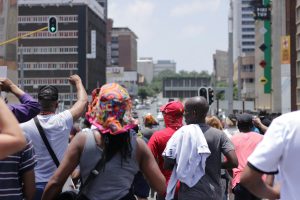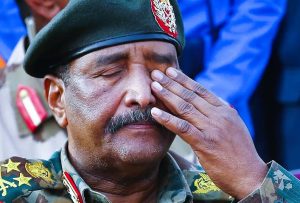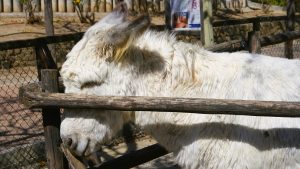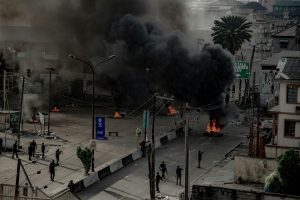A former influential defense minister in Guinea, Mohamed Diané, has been sentenced to five years in prison for charges including corruption, illicit enrichment, embezzlement, and money laundering. Diané served as the defense minister from 2015 to 2021 under President Alpha Condé’s administration, which ended when the military junta seized power in a coup.
Along with his prison sentence, the court ordered Diané to pay a fine of $58.5 million (£46 million), and his assets, including properties in the capital Conakry and the eastern city of Kankan, as well as his bank accounts, will be confiscated by the state. The court ruled that these assets could not be justified, suggesting that they were obtained through illicit means.
Diané has been in detention since May 2022, when the military junta, which took control of the country in a coup, launched a widespread campaign against corruption. The junta made it a top priority to fight corruption in Guinea, a country grappling with poverty and political instability. It established an anti-corruption court to pursue legal action against officials involved in corrupt activities. The junta’s campaign targeted a range of former officials, including over 180 people, such as former ministers and other high-ranking figures accused of corruption.
The military rulers had already initiated legal action against former President Alpha Condé, who was ousted by the junta in September 2021. Many Guineans initially supported the coup, hoping for an end to corruption and mismanagement. However, the junta, led by General Mamady Doumbouya, has faced increasing criticism for stifling political opposition and suppressing dissent. Critics argue that the junta’s crackdown is now targeting former allies of Condé’s government, raising concerns about political repression.
General Doumbouya, who assumed leadership after the coup, had previously pledged that there would be no “witch hunts” against members of the former government. His promises of transparency and reform have been undermined as the junta’s actions appear to be increasingly focused on curbing opposition voices. Many see the junta’s anti-corruption efforts as a tool to consolidate power rather than as genuine attempts to tackle Guinea’s long-standing governance issues.
The junta’s plans for a return to civilian rule remain unclear. Initially, the junta had proposed a two-year transition to democratic elections after taking power in 2021, following negotiations with the West African regional bloc ECOWAS. However, as the end of the proposed transition period draws near, there has been little progress toward organizing the elections or holding a promised referendum on a new draft constitution, which was supposed to precede any election.
In July 2023, the junta presented a draft constitution that has sparked controversy. One of the key provisions of the draft would allow General Doumbouya to run for the presidency in the upcoming elections, a move that has raised concerns about the junta’s intentions and the future of Guinea’s democratic process. The lack of concrete steps toward the promised transition to democracy has left many wondering whether the military government plans to hold onto power indefinitely.
The growing discontent with the junta’s rule has highlighted Guinea’s political challenges. While many citizens initially supported the coup in the hope of a better future, they now worry about the junta’s increasing authoritarianism. As the country approaches the deadline for a transition to civilian rule, questions about the military’s commitment to democratic reforms remain unanswered, and the situation in Guinea continues to be a source of concern for both domestic and international observers.
In summary, the sentencing of Mohamed Diané for corruption marks a significant step in the junta’s anti-corruption efforts. However, the broader political climate in Guinea is becoming increasingly polarized as the junta’s promises of a transition to democracy remain unfulfilled. The growing crackdown on opposition and the junta’s control over the political process are fuelling concerns about the country’s future under military rule.





